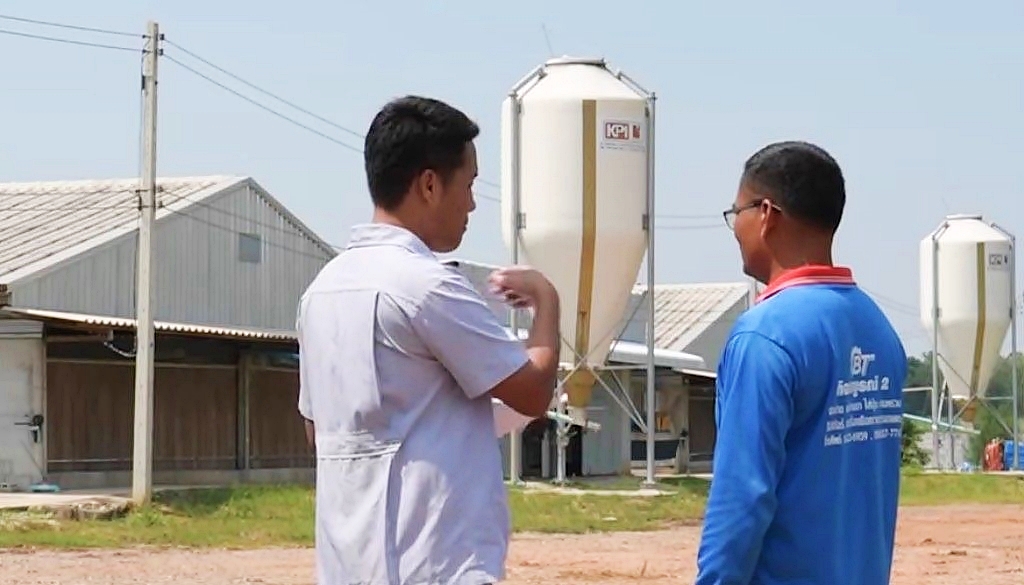
Contract farming is recognised as a critical cornerstone for global food security, embodying an agricultural production and marketing strategy that cultivates mutually beneficial partnerships between farmers and sponsors. This approach significantly boosts farmers' access to state-of-the-art technology and skill development, ensuring a stable income by mitigating the risks of market volatility through predetermined contract pricing.

Operating as a structured system of agricultural production and service provision, contract farming involves agreements between "business operators" and "farmers" or "groups of farmers." This system is applicable across diverse types of crop cultivation and animal husbandry, aiming to alleviate small-scale farmers' vulnerability to price swings and market instability. The contractual arrangement clearly delineates management responsibilities and tasks, where business operators convey production methodologies and provide necessary inputs to farmers. In turn, farmers are committed to producing goods that meet the specified quantity, quality, and timeline or standards determined by the operators, ensuring produce is delivered at a pre-negotiated and secured price. This model not only guarantees a consistent income for farmers but also secures a dependable supply of high-quality raw materials for businesses, effectively safeguarding farmers from price exploitation and aligning product output with market demands.

Since 1975, Charoen Pokphand Foods Public Company Limited (CPF) has been at the forefront of introducing an integrated contract farming model in Thailand with its “Promoting Animal Husbandry for Small-Scale Farmers Programme,” encompassing over 5,500 smallholders engaged in swine, poultry, and layer hen farming. The programme emphasises the dissemination of knowledge, adoption of contemporary livestock farming technologies, and implementation of Smart Farm and Green Farm Standards. Its primary objective is to improve the livelihoods of farmers, encouraging both independence and collective growth.
CPF plays a crucial role in shielding farmers from market risks by ensuring the procurement of products at pre-agreed prices, thus insulating them from the whims of market fluctuations. In adherence to the international UNIDROIT standards, an independent intergovernmental organisation, CPF has modernised its contract farming agreements to be modern, transparent, equitable, and traceable.
Leading the way, CPF offers insurance for income-guaranteed contract farms, mitigating the effects of potential disasters on farm infrastructure. Such initiatives provide farmers with a sense of security, promoting independence and sustainable prosperity.

Farmers participated in CPF’s contract farming programme like Warakorn Teesoongnern who owns Warakorn Farm commend CPF’s contract farming for its clarity and fairness, underlining the importance of mutual understanding and shared benefits for ensuring career longevity and family stability. "My goal is to evolve my farm into a Smart Farm, emphasising responsible and eco-friendly practices," states Warakorn.
Thanasak Onkij of Natalee Farm underscores the trust and adherence to standards in their triennial contract renewals with CPF. This partnership is instrumental in guaranteeing food safety and security, supporting small-scale livestock farmers with expertise and technology for Smart Farm practices.
CPF is committed to continuously refining its contract farming model, thereby enriching the agricultural sector's value and ensuring the trade's longevity for future generations. This strategy not only secures stable livelihoods for Thai farmers but also fortifies the national food production chain and food security.

Furthermore, CPF's contract farming model guarantees an uninterrupted supply of quality raw materials for production, ensuring the provision of hygienic, safe, and superior food to consumers. This dedication to advancing the contract farming system enhances CPF's agricultural production, passing down the professional legacy from one generation to the next. It stands as a testament to a model that fosters stable livelihoods for Thailand's small-scale farmers, creating a safe food production chain and ensuring a sustainable food supply for consumers.